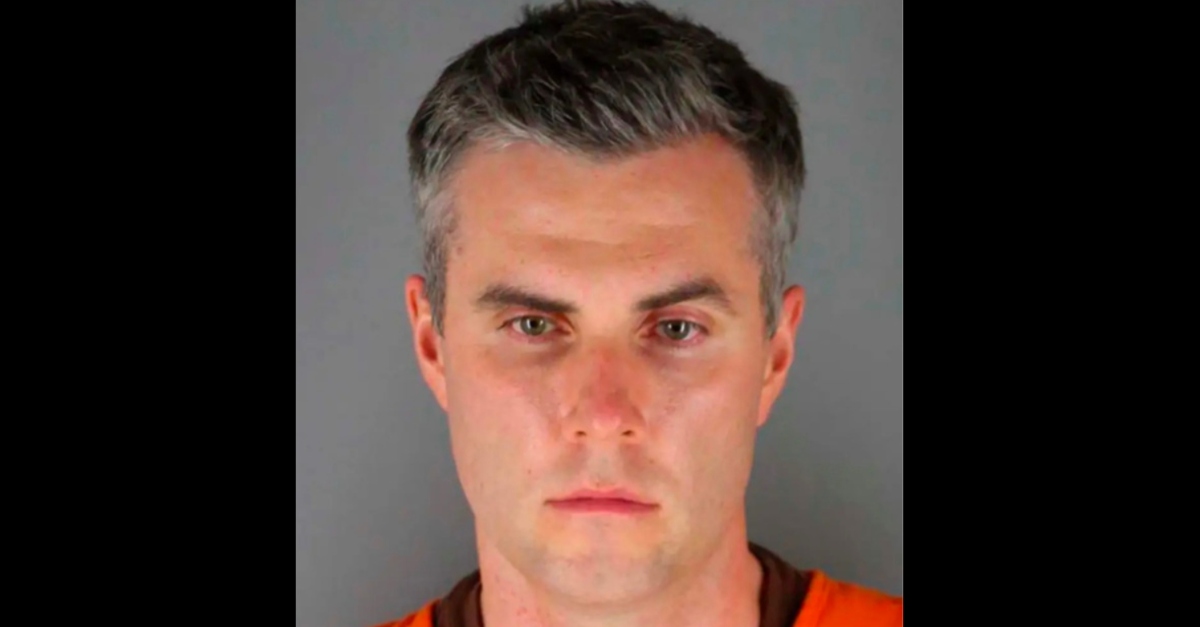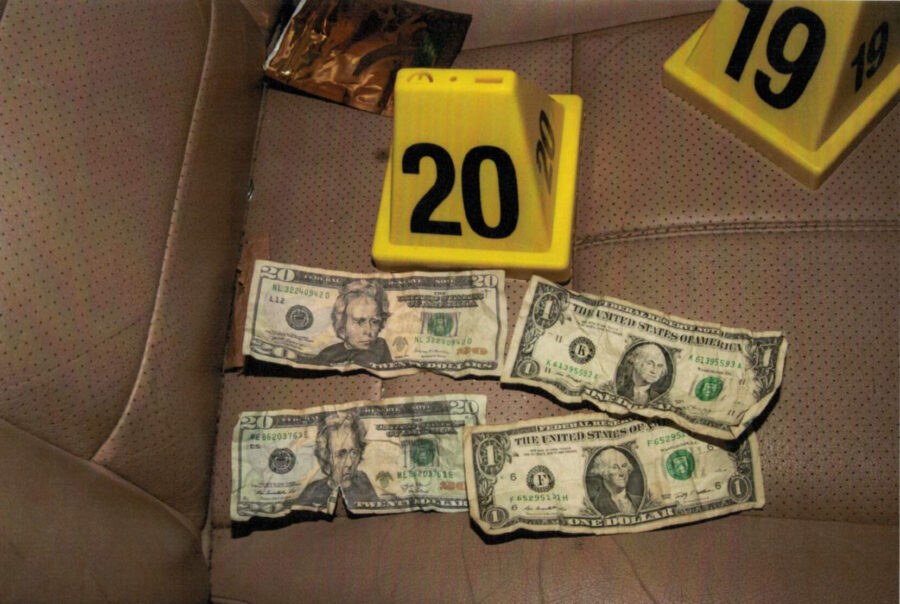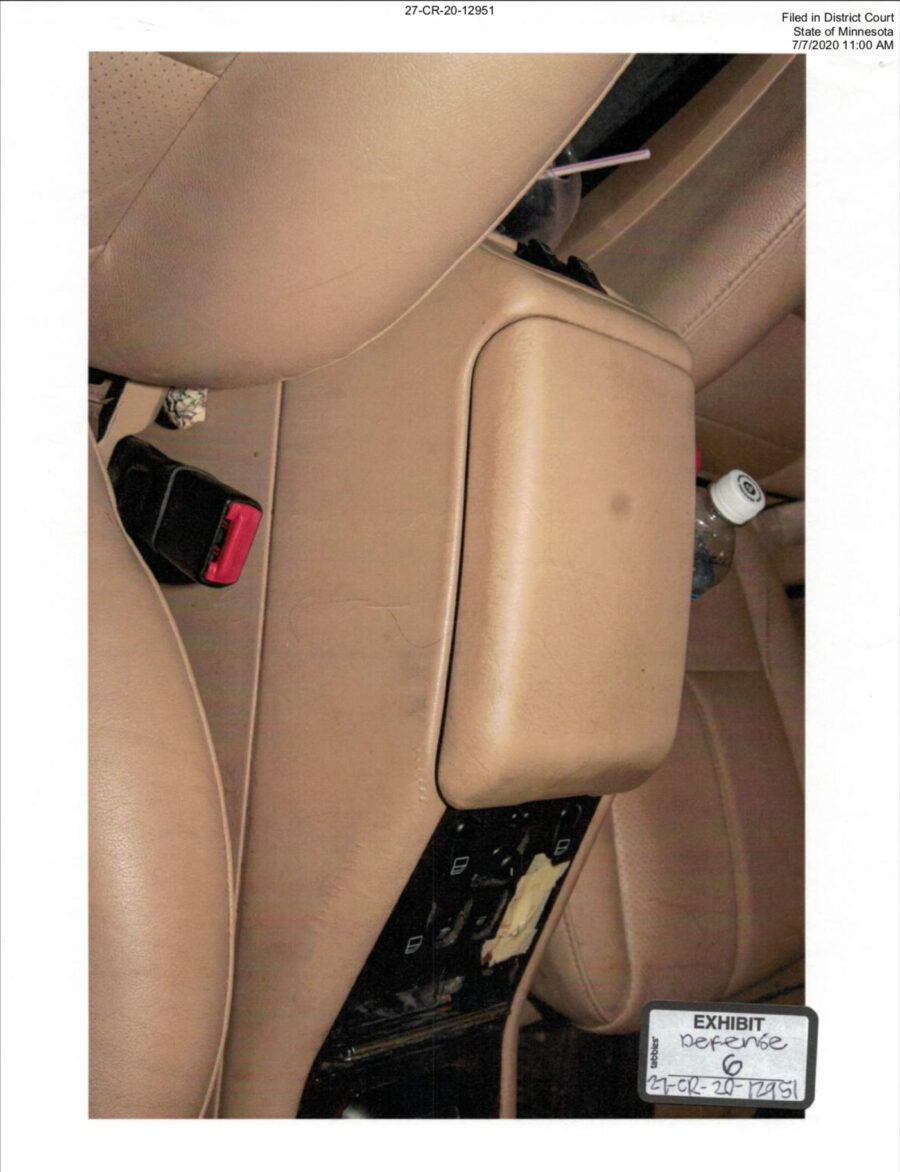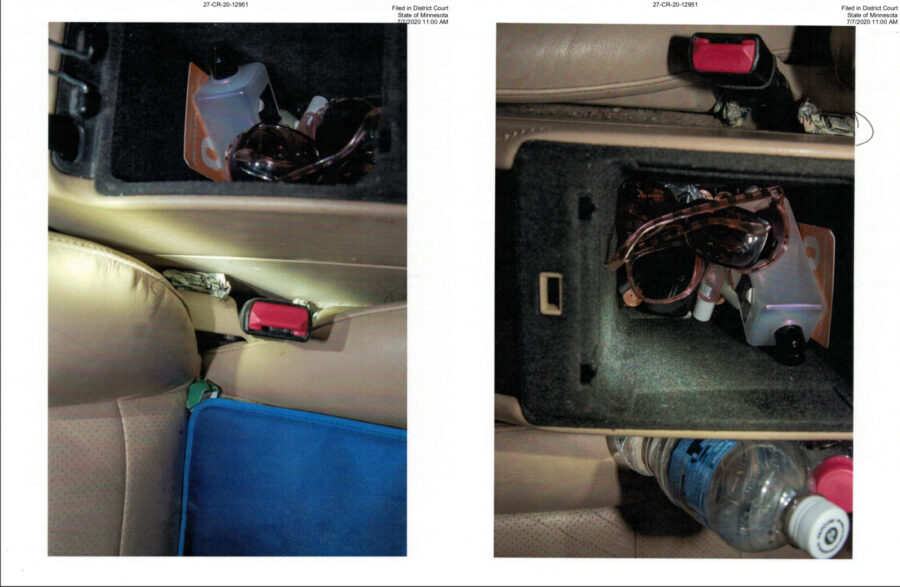
A former member of the Minneapolis Police Department implicated in the killing of George Floyd on May 25 filed a motion to dismiss the charges against him in a county court..
“It is not fair and reasonable to require the defendant to stand trial on the charges,” the July 7 memo in support of the motion filed by Thomas Lane‘s attorney began. “There is no probable cause for the charges based on the entire record and the law.”
Lane was charged with aiding and abetting murder and manslaughter along with fellow former officers Tou Thao and J. Alexander Kueng–who also took part in Floyd’s arrest and death. Derek Chauvin, the officer who killed Floyd, was charged with felony murder in the second-degree, third-degree murder and second-degree manslaughter.
The defense motion attempts to cast Floyd as partially culpable for his own death due to alleged actions immediately before dying.
“Lane initially notices movement in the car when approaching,” the filing argued. “He demands to see Floyd’s hands at least ten times while Floyd is seated in the vehicle. Floyd attempts to leave the vehicle before being asked to exit. Upon then exiting when asked to, Lane is yelling demands to Floyd as to hand placement and where to stand. Floyd continues to move around until he is eventually cuffed and moved to the sidewalk where he is seated.”
The motion said “two other passengers” were on the scene at the time of Floyd’s death and “exited the vehicle without being asked to.”
“Lane and Kueng ask questions of the passengers, as well as Floyd, regarding Floyd being under the influence of something based on his behavior,” the filing continued. “Floyd is acting erratic and has foam around his mouth.”
The defense’s theory–based on Floyd’s alleged culpability in his own death–is bound to ignite controversy.
“The officers, Lane and Kueng, attempted to secure Floyd in the squad car to further investigate what had happened,” the document argued. “This decision was made based on Floyd’s conduct, his condition, and the officers being outnumbered. Floyd had just committed a felony, he was not being cooperative, and appeared to be under the influence of drugs. There was a lengthy struggle to get 6 foot four, 223 pound Floyd into the car. Floyd initially claimed he was claustrophobic and Lane offered to stay with him, roll the windows down, and turn the air conditioning on. Floyd still would not comply. He continued to yell and kick back, and began bleeding during the struggle in the squad vehicle.”
While casting Floyd as a particularly combative detainee, the motion also painted Lane as frequently sensitive to Floyd’s needs.
“Lane and Kueng begin to walk Floyd to the squad vehicle to control the scene,” the motion said. “Floyd continues to move around and falls down. When approaching the squad car Floyd tells the officers he is claustrophobic, Lane tells Floyd he will crack the window and turn on the air conditioning for him.”
The motion, citing Lane’s own body cam, repeatedly attemptted to make the defendant’s case using the two recurring themes of: (1) Floyd’s alleged noncompliance; and (2) Lane’s alleged sensitivity.
“The officers attempt to get Floyd into the squad car and tell him multiple times to take a seat,” the filing goes on. “Floyd does not take a seat and starts saying he is going to die. He also tells officers he just had COVID. The struggle continues and Floyd says ‘I’ll get on the ground, anything.’ He is asked several more times to get in the car. Floyd tells officers ‘I can’t breathe’ and ‘I want to lay on the ground’ a couple of times. Lane eventually responds with ‘get him on the ground’. Prior to getting Floyd to the ground he says he can’t breathe multiple times.”
The filing cited instances where Lane spoke up during the arrest:
Floyd is brought to the ground at 20:19:14 and continues to move around and says he can’t breathe. Lane calls for EMS code 2. Ambulance is on the way. Lane asks other officers “should we get his legs up, or is this good?” Chauvin says “leave him”. As Floyd continues to yell out, Lane tells the other officers “he’s got to be on something.” The video footage at this time shows Lane is near Floyd’s feat, Kueng is in the middle of Floyd’s body, and Chauvin is near his back and head. Lane asks “should we roll him on his side.”Chauvin responds “no, he’s staying put where we got him.” Lane then says “Okay. I just worry about the excited delirium or whatever.” Chauvin responds “well that’s why we got the ambulance coming.” Lane observes that he is breathing. The video footage shows Floyd still moving his legs, where Lane is positioned. Then Lane asks again, “should we roll him on his side?”
A separate section drew from Lane’s interview transcript:
Officers ended up bringing Floyd to the ground after the struggle to get him in the car because Floyd was out of control. Chauvin, Lane, and Kueng restrained him on the ground. Lane said let’s use the “MRT”, Maximum Restraint Technique, which is what you use on someone who is handcuffed and not complying. Lane suggested using the hobble because he learned that that is what to use when you have someone who is handcuffed that is physically resisting. Lane was trying to get Floyd’s legs into a leg cross for that. Floyd was kicking around at that point. Chauvin had his knee “up around the shoulders and neck area” according to Lane.
The defense motion also drew attention to the underlying reason for the original police response: Floyd’s alleged use of a counterfeit $20 bill at a Minneapolis convenience store.
Again the filing at length:
Later on in the recording, Kueng is talking to the store manager where the fake money was used by Floyd. The store manager explains what happened and that they confiscated one – twenty dollar bill but that he had a lot more with him. The manager also included that they seemed “high off stuff”. Kueng explains to Chauvin more of the original encounter and stated “but we pulled him out because when we tried to talk to him he started fidgeting around and grabbing for things. So we pulled him out, but he was not cooperative.”
“During the investigation pictures were taken of inside Floyd’s vehicle,” Lane’s motion notes. “The pictures were provided to the defense by the State. The pictures in this exhibit show crumpled up money, two – counterfeit twenty dollar bills, and two –one dollar bills, lodged in between the center console and the passenger seat. Right where Lane saw Floyd put his right hand.”
The defense included some of those pictures as exhibits:



“The decision to restrain Floyd was reasonably justified,” the defense argued in summary. “Prior to approaching the vehicle, officers saw furtive movement in the vehicle. Officers did not know if there was a gun involved or if the occupants of the vehicle were planning to flee. It was later learned that it was counterfeit money that Floyd was shoving into the side of the seat where officers saw him reaching, as evidenced by the pictures in Exhibit 6. Floyd was uncooperative from the second officers approached his vehicle. Floyd was actively resisting and acting erratic for over 10 minutes.”
Thomas Lame Memo in Support of MTD by Law&Crime on Scribd
[Image via Hennepin County Jail]